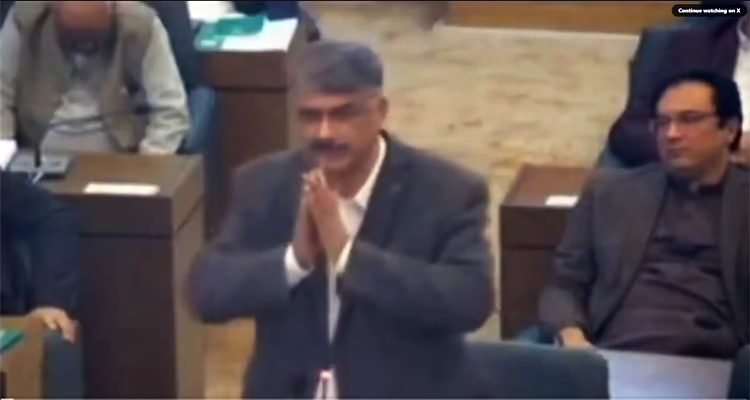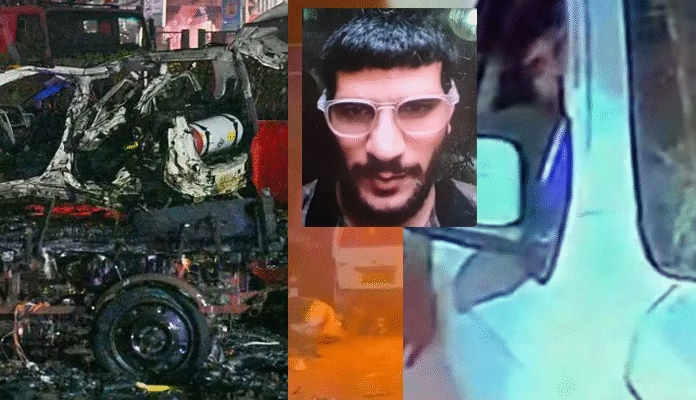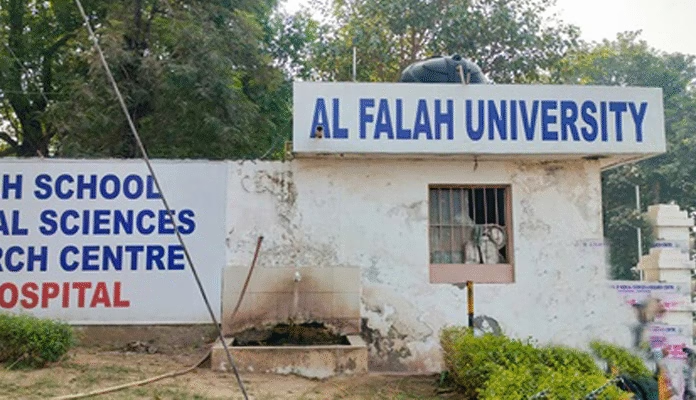
New Delhi: A brazen public admission by Pakistani politician Chaudhry Anwarul Haq has triggered a political and diplomatic uproar, after he openly claimed that Pakistan-based militants carried out attacks “from the Red Fort to the forests of Kashmir.”
In a viral video, Haq is heard declaring: “I warned that if Balochistan continued to be targeted, we would strike inside India — from the Red Fort to Kashmir. By the grace of Allah, we have done it, and they still can’t count the bodies.” He went on to boast that “armed men entered Delhi and attacked… they probably haven’t even counted all the bodies yet.”
#WATCH | Former PoK PM Anwarul Haq admits Pakistan’s role in the Red Fort blast, saying he had already warned of it.#Pakistan #India #RedFortBlast #DelhiBlast
Follow @TimesNow for more news and updates. pic.twitter.com/2WDE8sDgyN
— TIMES NOW (@TimesNow) November 19, 2025
Red Fort Blast and Kashmir Massacre Referenced
Haq’s comments point directly to two major terror strikes on Indian soil this year:
-
The November 10 Red Fort car explosion in Delhi, which killed 14 people. Investigators have linked the attack to a Jaish-e-Mohammed–connected ‘white-collar’ module operating out of Faridabad, including several doctors from Al-Falah University.
-
The April massacre in Jammu & Kashmir’s Baisaran Valley, where militants opened fire on tourists in the Pahalgam region, killing 26.
The Red Fort blast was executed by Dr Umar Un Nabi, part of a professionally camouflaged terror network using academic credentials to procure chemicals and build explosives. The cell is suspected to have 9–10 members.
Operation D-6: A Bigger Plot Uncovered
The Delhi attack was only one part of a larger blueprint. Investigators say the same Faridabad-based module was preparing a massive suicide bombing for December 6, codenamed “Operation D-6.”
The plan surfaced during interrogations of suspects arrested in Faridabad and Kashmir. The cell had allegedly advanced weeks into preparations for a large car-bomb attack to mark the anniversary of the Babri Masjid demolition.
Officials have identified Dr Shaheen Shaheed and Dr Umar as the masterminds. Dr Shaheen was reportedly tasked with building a new women-centric wing of Jaish-e-Mohammed, named Jamaat-ul-Momineen, aimed at recruiting and deploying female operatives.
Six Locations Identified in Terror Blueprint
Interrogation of arrested suspects, digital chats and recovered hand-drawn maps indicate that the network had shortlisted six high-footfall, high-symbolism locations:
-
Red Fort, Delhi – Symbolic target; first detonation already occurred
-
India Gate, Delhi – High-visibility monument
-
New Delhi Railway Station – Major civilian hub
-
Chandni Chowk / Jama Masjid area – Extremely dense crowd zone
-
A key temple complex in Uttar Pradesh – Name withheld by investigators
-
A market district in Haryana (likely Gurgaon or Faridabad) – Close to module’s operations
Officials emphasise that the list may expand as data from seized hard drives and encrypted chat apps is decoded.
Pakistan’s Internal Cracks Exposed
Haq’s shocking admission adds to a pattern of disclosures from within Pakistan’s leadership. Recently, Khyber Pakhtunkhwa Chief Minister Sohail Afridi alleged that the Pakistani state stage-manages or manipulates terror incidents for political leverage — remarks widely reported in the region.
India’s Firm Pushback
New Delhi has dismissed Pakistan’s accusations of Indian involvement in Balochistan as a “classic diversion,” countering that Islamabad continues to shelter and sponsor extremist groups.
After the Pahalgam killings, India escalated diplomatic pressure and even froze aspects of the Indus Waters Treaty, demanding Pakistan curb terror activities.
Al-Falah University Under Scanner
The exposure of the Faridabad module has put Al-Falah University under intense scrutiny. Multiple faculty members — including doctors — have been arrested, and agencies say the terror network exploited “white-collar legitimacy” to mask their operations.
A Claim That Could Backfire on Islamabad
Haq’s remarks, seen as one of the most explicit acknowledgments of cross-border terrorism in years, could sharpen global attention on Pakistan’s role in fostering violent extremist networks.
For now, Haq’s boast has only deepened the diplomatic chasm, stirred fresh anger in India, and revived international concerns over Pakistan’s long-standing use of proxy terror groups.



